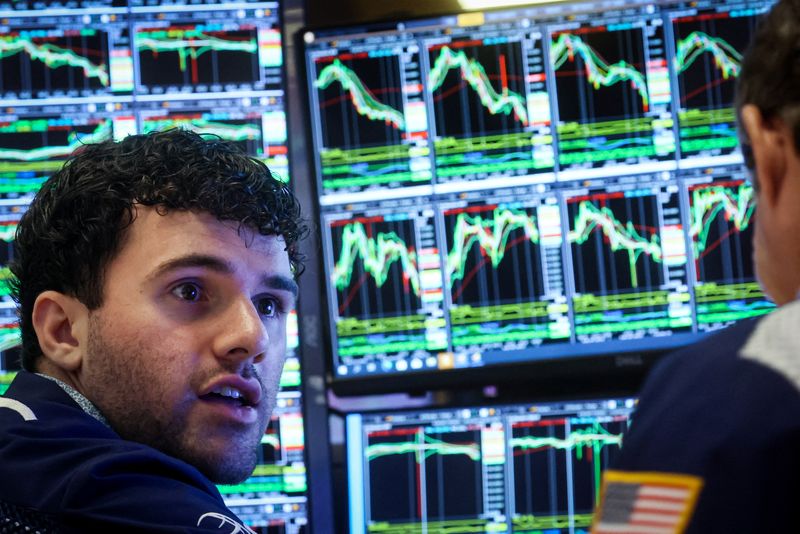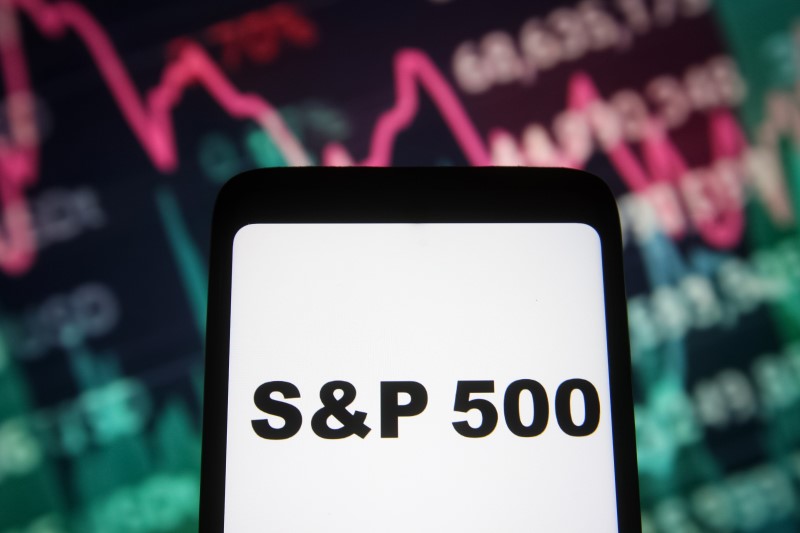
© Reuters. Traders work on the floor of the New York Stock Exchange (NYSE) in New York City, U.S., July 6, 2023. REUTERS/Brendan McDermid
By Carolina Mandl
NEW YORK (Reuters) -Global long/short hedge funds, those that bet stocks will fall or rise, were forced to unwind bearish bets that were dragging down performance in July, a Goldman Sachs (NYSE:) report showed on Monday.
Long/short funds are on track to post the worst monthly so-called alpha performance since May 2022, which considers gains in excess to benchmark indexes.
Losses were mainly on the short side of portfolios, but Goldman saw “a meaningful deterioration in long side” too. A graphic showed alpha returns were down roughly 1% for the month.
Goldman Sachs, as one of the biggest providers of lending and trading services to investors, is able to see how large hedge funds and asset managers move.
“This year has been challenging for anyone running significant short positions, even if the fund is overall net long,” said Mark Spiegel, portfolio manager at hedge fund Stanphyl Capital. “There’s a huge disconnect between sluggish corporate earnings accompanied by increasingly tight monetary policy versus stock prices.”
Long/short hedge funds were still up 0.49% in July through Friday, driven by the overall stock market rally, which tends to benefit their long bets, a different Goldman Sachs report showed on Friday. The rose roughly 2% in the same period.
Overall, different hedge fund strategies have been forced to unwind their short positions to avoid further losses at a fast pace in July amid a market rally, the bank said, adding there had been few times in the past 10 years when the de-risking move had been as high.
Goldman wrote hedge funds may be close to the finish line of this trend, given the record levels reached. Going into August, funds could re-engage in shorts again, it added.
Mario Unali, senior portfolio manager at Kairos Partners, which invests in hedge funds, said hedge funds were unlikely to add long positions. “I don’t expect the hedge fund industry to start chasing the market right now, at a time of seasonally low volumes and increased gap risk.”








